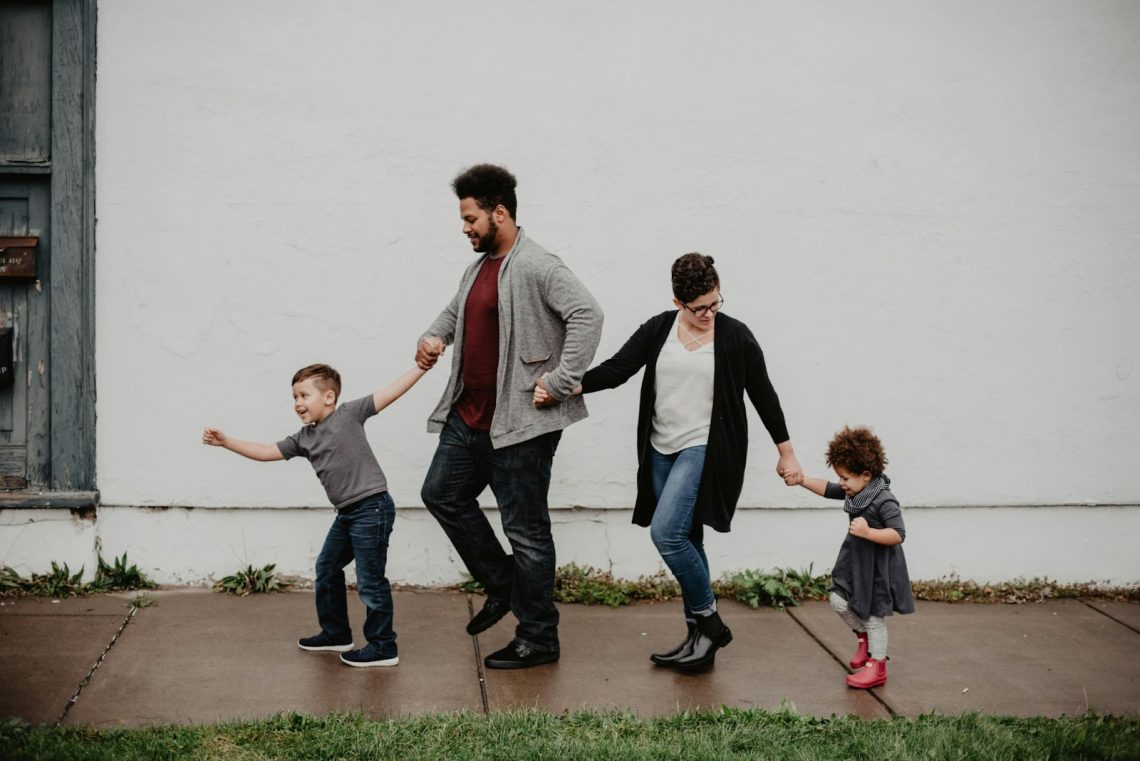
How to Give Your Children the Life They Deserve
This is a collaborative post
Parenthood is a wild ride, isn’t it? From the moment your child comes into the world, you feel the weight of responsibility to give them the best life you possibly can. It’s a mix of love, hope, and sometimes a little worry. You want them to grow up happy, secure, and prepared to face the world.
The good news is that it’s not about being perfect; it’s about being intentional. Love and support lay the foundation for their growth, while a bit of preparation can shape their future in ways you’d never imagine. Every choice you make, every lesson you teach, big or small, plays a part in creating the life they deserve.
Teach Good Habits
Good habits are like building blocks for your child’s future that shape who they are and how they handle life. The habits they develop early often stick with them well into adulthood. That’s why it’s so important to start now and help them build a strong foundation. Whether it’s learning how to stay organized, managing their emotions, or developing a sense of gratitude, the effort you put in today can pay off for years to come.
Build Routines
Routines aren’t just about structure. They’re a way to bring a little sanity into your busy life while teaching your kids some essential skills. A solid routine helps kids manage their time better and reduces stress for everyone in the house. Plus, kids thrive on consistency.
Start small with daily habits. Teach them to brush their teeth in the morning and before bed. Show them how to tidy up their toys after playtime or set aside a specific time for homework and reading. These little habits add up, creating a rhythm to their day that they’ll carry with them as they grow.
Teach Emotional Intelligence
Good habits aren’t just about actions, they’re about how we treat others and ourselves. Emotional intelligence might sound like a big term, but it’s really just about teaching your child how to understand and manage feelings, both their own and others’. This is a lifelong skill that helps with relationships, problem-solving, and confidence.
Start with simple practices, like encouraging gratitude. For example, try sharing something you’re thankful for at dinner, it’s easy and meaningful. Or, when they’re upset, calmly help them talk through their emotions. Instead of dismissing their feelings, show them how to handle things constructively. These moments teach empathy and communication, which are just as important as brushing their teeth or finishing their homework.
Lead by Example
Now, here’s the catch, kids are little mirrors. They’ll mimic what you do, not just what you say. If you want them to eat their veggies, for example, you’ve gotta eat yours too (yes, even the broccoli).
Show them the habits you want them to build. Eat healthy meals together, stay active as a family, and practice kindness in your daily actions. If they see you being patient and polite, they’ll be more likely to follow suit. Remember, your actions are their biggest classroom, so make sure the lessons you’re teaching are the ones you want them to learn.
Invest in Quality Time
When it comes to giving your kids the life they deserve, the time you spend with them far outweighs any material gifts you could buy. Kids remember the moments they laughed with you, learned from you, and felt your undivided attention, not the fancy toys or gadgets. Prioritizing quality time shows them they’re valued and loved, with no strings attached.
Presence Over Presents
It’s easy to fall into the trap of thinking that toys or expensive gifts make kids happy. But the truth is, children cherish memories more than things. Think about the joy of a family dinner filled with laughter, a board game night where everyone lets their competitive side out, or a sunny afternoon exploring the outdoors together. These are the moments they’ll carry with them forever.
Set aside time to be fully present with your kids. Whether it’s a quick walk to the park, reading bedtime stories, or cooking together, these small yet intentional activities strengthen your bond. And the best part? They don’t cost a thing.
Encourage Their Interests
Every child has their own spark, that thing that lights them up and makes them excited to learn and grow. It could be playing soccer, painting, singing, or collecting rocks from the backyard. Your job is to cheer them on and make space for those passions to thrive.
Supporting their interests boosts their confidence and helps them explore their creativity. It’s not about pushing them to be the best at something; it’s about showing them you believe in their dreams. Whether you’re driving them to band practice or clapping the loudest at their school play, your encouragement means more than you realize.
Create a Safe Space
Quality time isn’t just about activities, it’s about connection. Kids need to feel like they can come to you with their struggles, dreams, and questions without fear of being shut down or judged. Creating a safe emotional space is one of the greatest gifts you can give them.
Listen when they talk, even if it’s about something small, like their imaginary friend or what happened at recess. Respond with patience and understanding. Remind them that their feelings are valid and you’re always there to help them through rough patches. This sense of security builds trust and helps them grow into emotionally healthy adults.
Ensure Financial Security
Providing your children with the life they deserve goes beyond love and quality time—it also means creating a stable foundation for their future. Financial security doesn’t just keep the lights on; it gives you the freedom to focus on their education, health, and overall well-being without constant stress. It’s not about being wealthy, it’s about being prepared and thoughtful with your money.
Importance of Financial Stability
When your finances are in order, it benefits the whole family. You can prioritize things like sending your kids to good schools, keeping up with healthcare needs, or even planning meaningful family experiences. Money may not buy happiness, but it reduces stress and opens doors to opportunities that truly enrich your children’s lives.
Plan for the Long Term
A big part of financial security is thinking ahead. Emergencies happen, and kids grow up faster than we expect, so having a financial plan can make all the difference. Start by setting up an emergency fund. Aim for a few months of living expenses put safely aside, that way, if life throws you a curveball, you’re better prepared.
Consider Starting a Business
If you’re looking to take financial security to the next level, starting a business could be a great option. A side hustle or small business can provide extra income, give you more flexibility, and become something you can pass down to your kids someday.
If the business you are interested in requires some upfront capital investment, you can always look at funding options like secured loans or crowdfunding. These could provide a financial boost to help you get your business off the ground.
Giving your children the life they deserve doesn’t have to be overwhelming. It’s about the little moments and practical steps that add up over time. By teaching good habits, you set them up for a lifetime of success. By investing in quality time, you give them memories and a sense of connection that money can’t buy. And by working toward financial security, you provide a stable foundation for their future.





